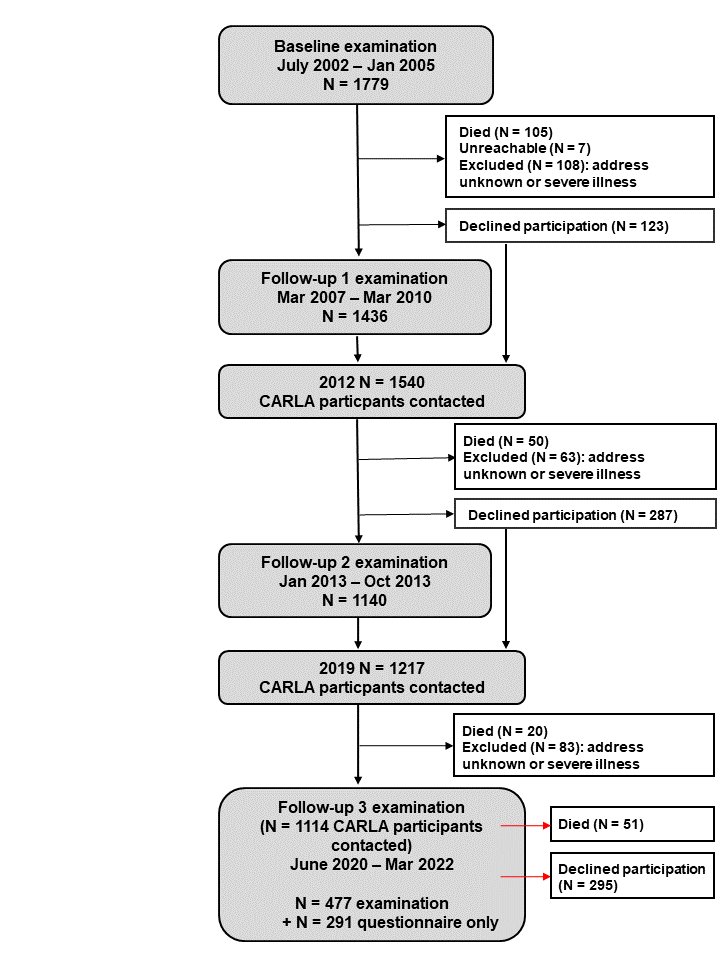Study Description
The current description of the CARLA study including all follow-ups, instruments used, measurements performed, samples collected and laboratory parameters obtained can be found in the following publication:
Hassan, L., Efremov, L., Großkopf, A. et al. Cardiovascular risk factors, living and ageing in Halle: the CARLA study. Eur J Epidemiol (2022).
The original study protocol is described in the following publication:
Greiser, K.H., Kluttig, A., Schumann, B. et al. Cardiovascular disease, risk factors and heart rate variability in the elderly general population: Design and objectives of the CARdiovascular disease, Living and Ageing in Halle (CARLA) Study. BMC Cardiovasc Disord 5, 33 (2005).

Abstract
The CARLA study (Cardiovascular Disease, Living and Ageing in Halle) is a longitudinal population-based cohort study of the general population of the city of Halle (Saale), Germany.
The primary aim of the cohort was to investigate risk factors for cardiovascular diseases based on comprehensive cardiological phenotyping of study participants and was extended to study factors associated with healthy ageing.
In total, 1779 probands (812 women and 967 men, aged 45–83 years) were examined at baseline (2002–2005), with a first and second follow-up performed 4 and 8 years later. The response proportion at baseline was 64.1% and the reparticipation proportion for the first and second follow-up was 86% and 77% respectively.
Sixty-four percent of the study participants were in retirement while 25% were full- or partially-employed and 11% were unemployed at the time of the baseline examination.
The currently running third follow-up focuses on the assessment of physical and mental health, with an intensive 4 h examination program, including measurement of cardiovascular, neurocognitive, balance and gait parameters.
The data collected in the CARLA Study resulted in answering various research questions in over 80 publications, of which two thirds were pooled analyses with other similar population-based studies.
Due to the extensiveness of information on risk factors, subclinical conditions and evident diseases, the biobanking concept for the biosamples, the cohort representativeness of an elderly population, and the high level of quality assurance, the CARLA cohort offers a unique platform for further research on important indicators for healthy ageing.

